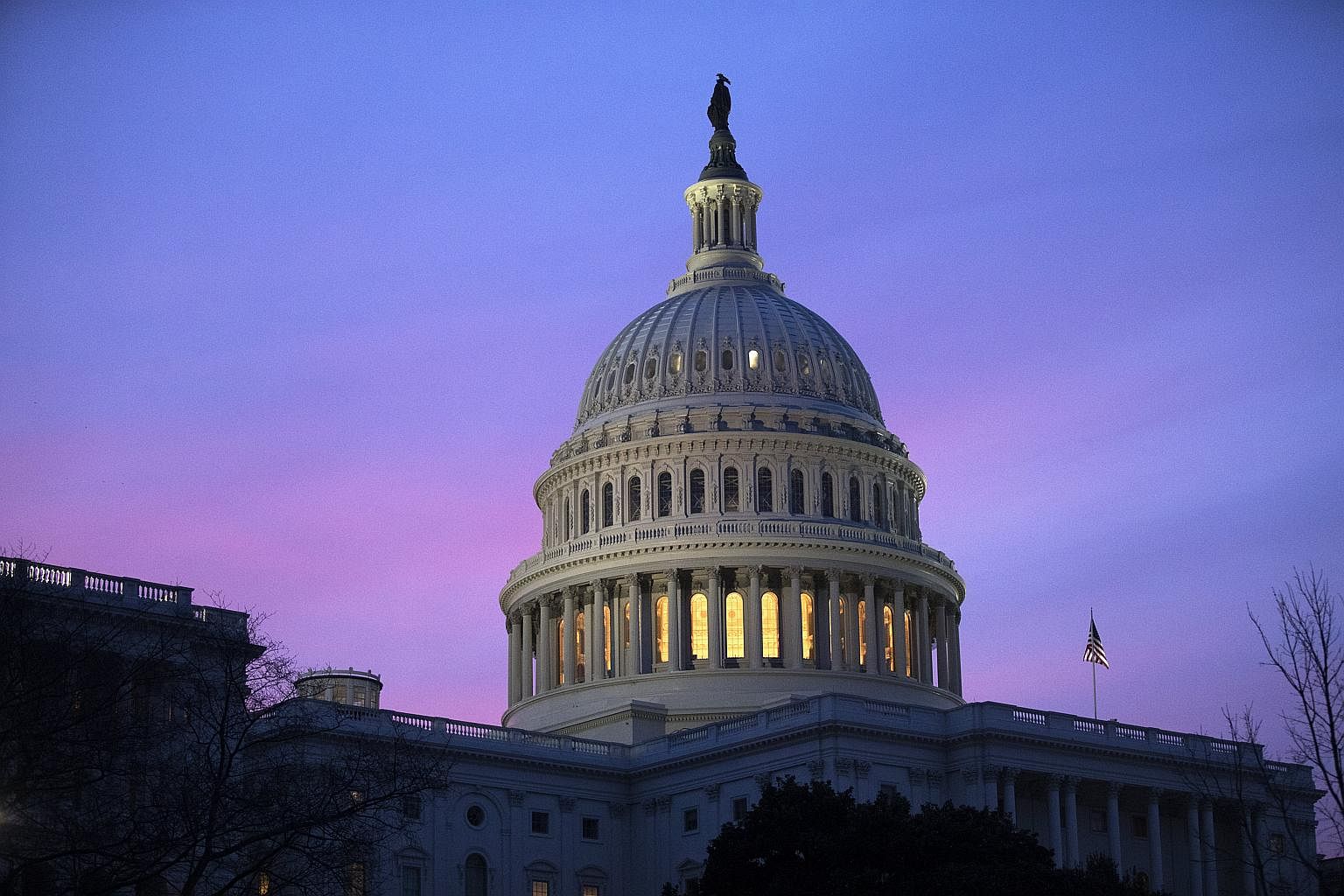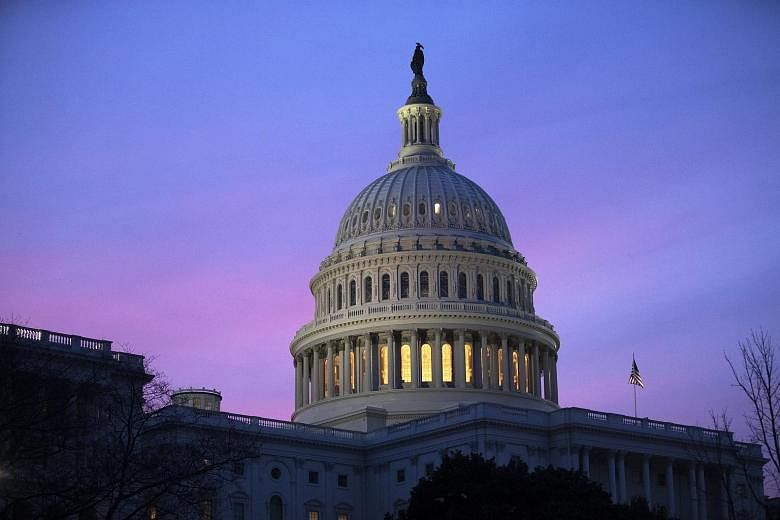WASHINGTON - The United States' two-year federal spending agreement passed in the early hours of Friday (Feb 9) in Washington contains the steepest increase in defence spending in about 15 years.
The problem, though - which applies to the entire budget - is whether that level of spending is sustainable beyond a year or two.
Spending on domestic social programmes like the opioid crisis and child health insurance was also hiked.
"Suddenly the US government decided to spend more on a lot of things that anyone thought it would," Dr Michael Mazarr, senior political scientist at the RAND Corporation told The Straits Times.
But the defence budget stands out.
"This is a truly massive increase in defence spending," Dr Mazarr said.
"In a single year we are adding more to the defence budget than Russia's entire defence expenditure (and) more than South Korea and Germany spend on defence combined."

"The way we have been able to come to this budget deal is by, temporarily at least, abandoning any concern for deficit spending," he said.
Details have not yet emerged, but the journal Defense One reported Defence Secretary James Mattis as saying he was very happy with US$700 billion (S$929 billion) for this year, and US$716 billion for next year. Those numbers appear to be the rough totals of base and overseas contingency operations funding, Defense One reported.
But adding a trillion dollars to the deficit a year because of tax cuts and this spending agreement was not sustainable, Dr Mazarr said.
"We have to either increase the revenue base, to afford higher defence spending over time, or we can adjust the defence strategy and formally tell the Department of Defence we don't need (the military) to do as much," he said.
"But we've chosen what has become the traditional American third way which is to do neither of these things and just spend money we don't have."
An inadequately resourced military has been a concern of US military leaders for some years, especially since 2011 budget caps - which the new spending bill lifts.
On Tuesday (Feb 6), Mr Mattis told the House Armed Services Committee: "We will prioritise rebuilding readiness while modernising our existing force."
Carl Thayer, Emeritus Professor at the Australian Defence Force Academy of the University of New South Wales, wrote in an e-mail that the budget was "welcome news to US allies and security partners around the world and in the Into-Pacific region in particular."
"The two-year defence budget will make it easier for Pentagon planners, raise troop morale (they got a 2.4 per cent pay hike as part of the package) and reassure countries dependent on the United States to maintain a stable rules-based order."
But he added: "There is a downside. The newly passed budget does not address where funding will come from, either in cuts to present government programs or new revenue. The likely result will be to raise US debt."
Dr Patrick Cronin, Senior Director at the Center for a New American Security (CNAS) said: "The budget helps to implement the administration's security and defence strategies, both of which emphasise heightened major-power competition and threatening regional powers such as North Korea and Iran."
The strategy called for a favourable balance of power for the US through credible, combat-capable forces. But "we have to be innovative in how we manage risk and achieve strategic effects at a lower cost" he wrote in an e-mail.
But he cautioned: "I hope that this budget will preserve strong diplomacy and development instruments of policy to complement our military power."
"Our defence strategy rightly looks to safeguard information dominance and conventional and nuclear superiority. Yet defence spending alone cannot win the battle of narratives, and military forces on their own cannot stave off irregular, grey-zone challenges to global security and regional norms."


